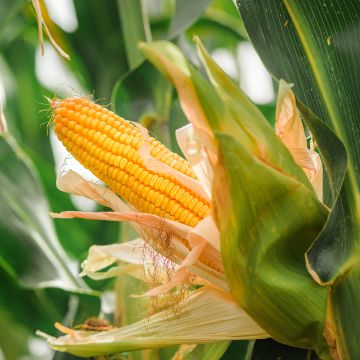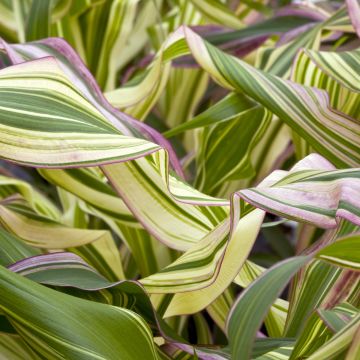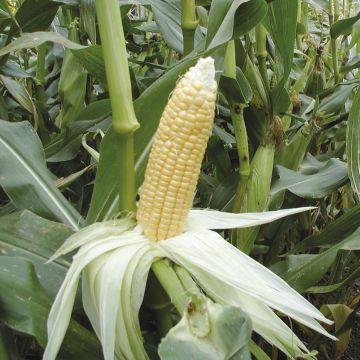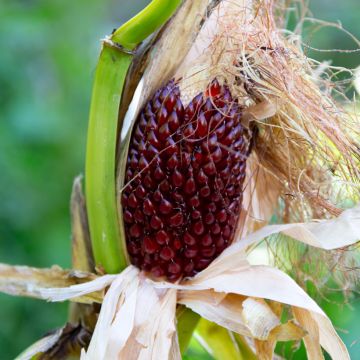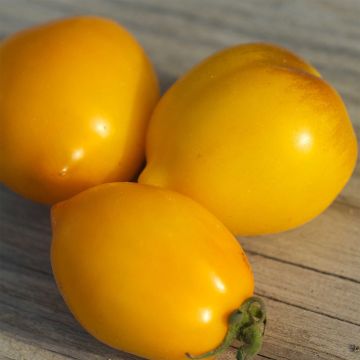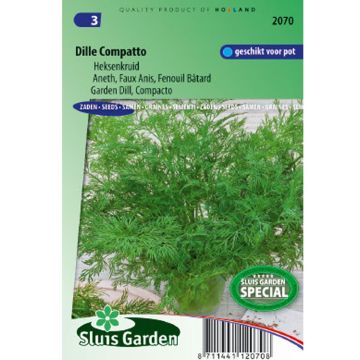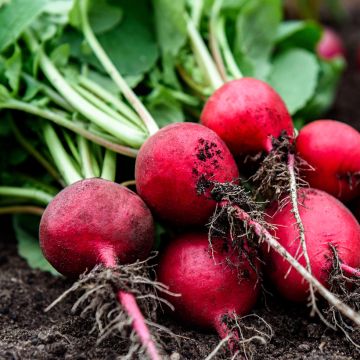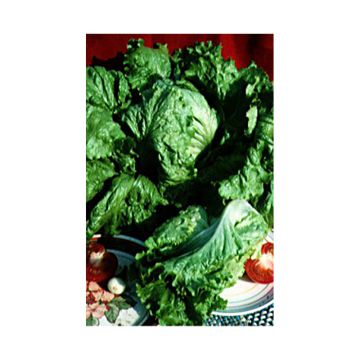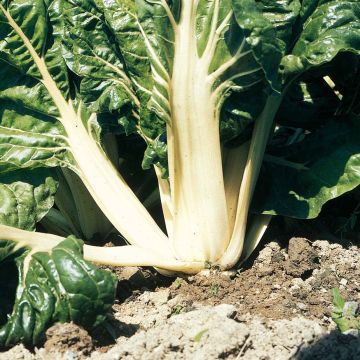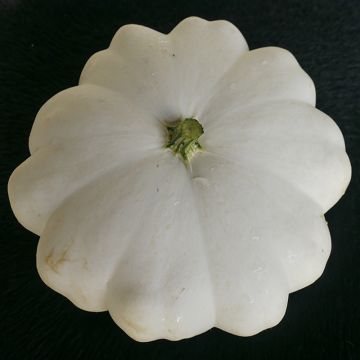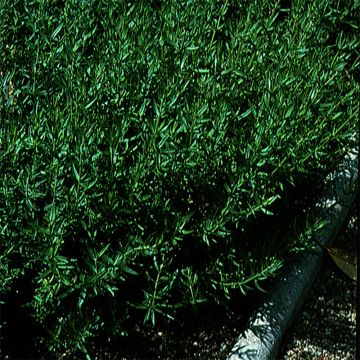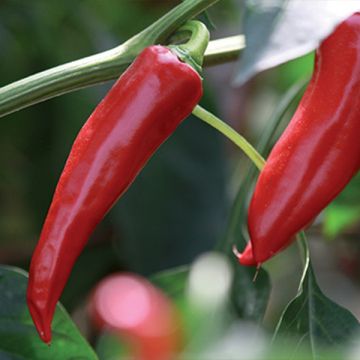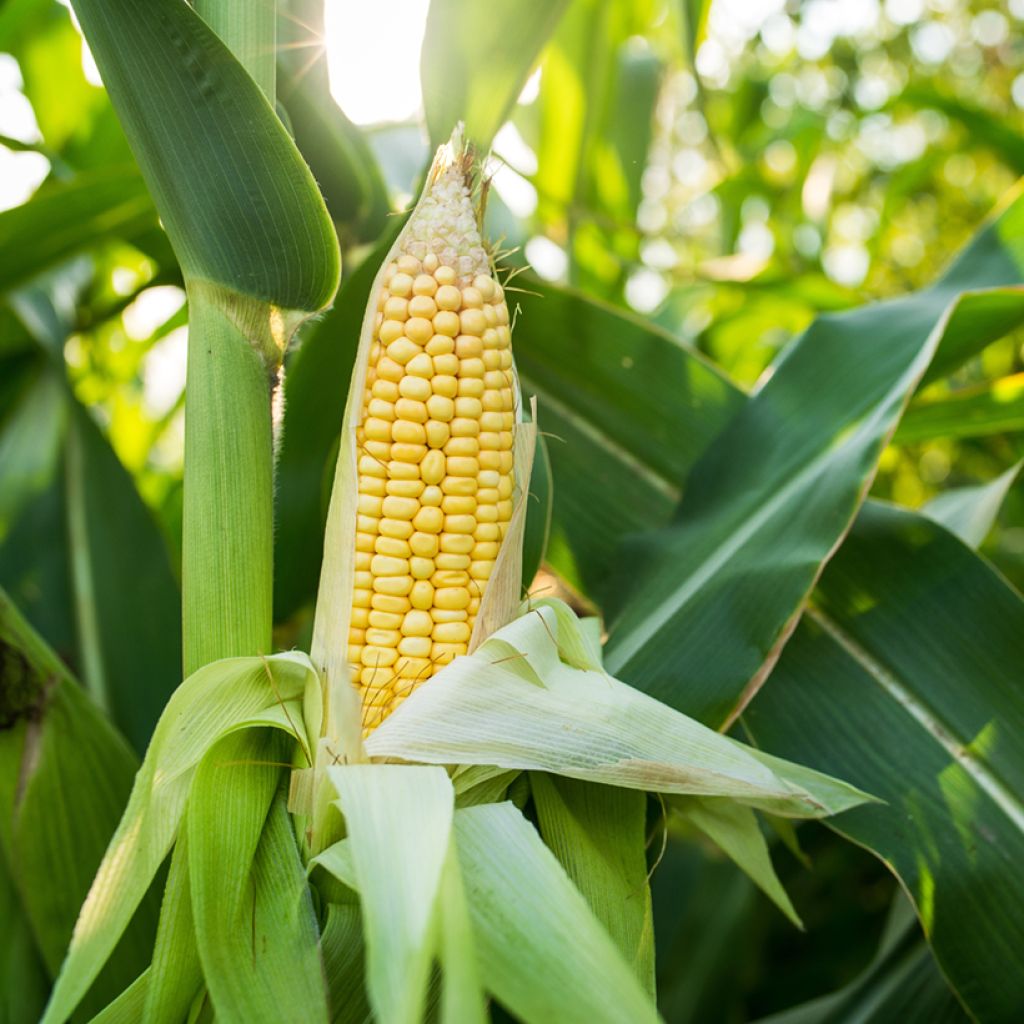

Sweet Corn Golden Bantam - Zea Mays
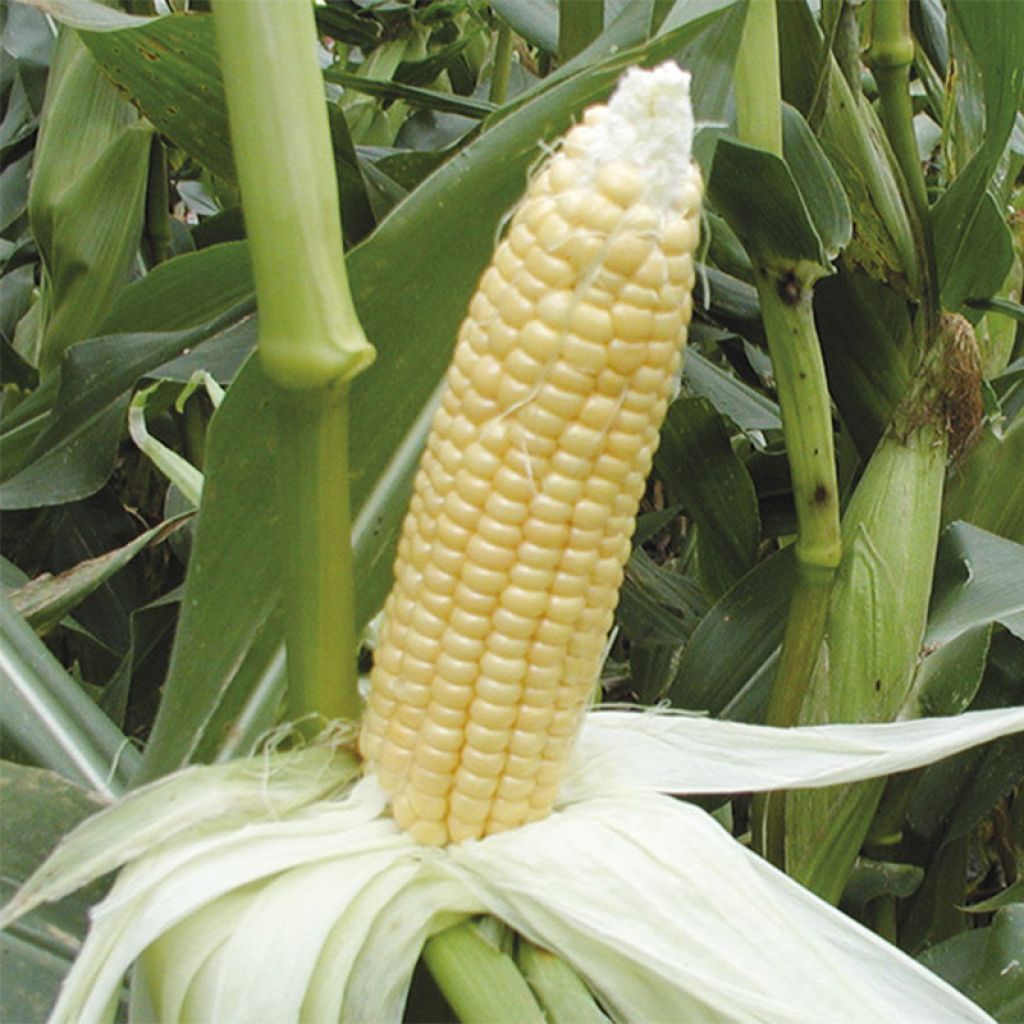

Sweet Corn Golden Bantam - Zea Mays
Sweet Corn Golden Bantam - Zea Mays
Zea mays Golden Bantam
Sweet corn 'Golden Bantam'
Strange... at home, sown directly in the ground for three weeks, nothing is sprouting...
Isabelle, 30/05/2023
Special offer!
Receive a €20 voucher for any order over €90 (excluding delivery costs, credit notes, and plastic-free options)!
1- Add your favorite plants to your cart.
2- Once you have reached €90, confirm your order (you can even choose the delivery date!).
3- As soon as your order is shipped, you will receive an email containing your voucher code, valid for 3 months (90 days).
Your voucher is unique and can only be used once, for any order with a minimum value of €20, excluding delivery costs.
Can be combined with other current offers, non-divisible and non-refundable.
Home or relay delivery (depending on size and destination)
Schedule delivery date,
and select date in basket
This plant carries a 6 months recovery warranty
More information
We guarantee the quality of our plants for a full growing cycle, and will replace at our expense any plant that fails to recover under normal climatic and planting conditions.
Description
Zea mays 'Golden Bantam' is a semi-early variety of sweet corn. The plants are quite tall (1.5 to 2m (5 to 7ft)) and produce 1 or 2 ears per plant. The cobs are yellow and measure 15cm (6in) in length, with large, milky, sweet, and tasty grains. The milky phase is short, and the ears should be picked without delay when they are ready. Sow from March to June for a harvest from July to October. It is a very old variety originating from the USA.
Sweet corn likes deep, light, moist, and humus-rich soils. Corn plants like a sunny exposure and need warmth. When planted on the edge of a vegetable garden, they will help to delimit the cultivation areas and provide shade for vegetables that need it (lettuce, cabbage, etc.).
Sweet corn is a natural variant of corn. It has many nutritional benefits. It is low in lipids and low in calories. It is richer in protein than rice, and five times richer in fibre. Its glycaemic index is moderate. In addition, it contains many B-group vitamins and vitamin C. It also contains many minerals and trace elements.
Harvest: sweet corn is harvested 80 to 120 days after sowing, depending on the heat and watering. Harvest when the silks start to turn brown. The grains should be fully developed but still tender. To check if they are ripe, take a few grains from an ear and crush them: they should be slightly milky. If harvested too late, the sugar turns into starch and the skin becomes tough.
Storage: after harvesting, remove the green sheath that surrounds the ear and consume it quickly. To store them for a longer period, cook them and then preserve them in jars or freeze them.
Gardener's Tip: traditionally, Native Americans cultivate corn alongside climbing beans and squash. These three plants benefit each other: nitrogen nutrition from the beans, support from the corn, and ground cover from the squash leaves. First, sow the corn. When it reaches 10cm (4in) in height, sow two bean seeds and two squash seeds around the corn.
Report an error about the product description
Harvest
Plant habit
Foliage
Botanical data
Zea
mays
Golden Bantam
Poaceae
Sweet corn 'Golden Bantam'
Cultivar or hybrid
Annual
Other Sweetcorn seeds
View all →Planting and care
Sowing sweet corn
Soak the seeds in warm water for 12 hours. Sow in full sun. In the garden, sow from April to June in warm soil (at least 12°C (53.6°F)). You can place a tunnel over early sowings until the temperatures warm up enough. You can start sowing in pots indoors as early as March, and plant them in May-June in the garden. Stagger your sowings to spread out the production period. Only sow one variety at a time, or two varieties with staggered flowering: sweet corn easily hybridises. This means you won't harvest the variety you sowed! If your garden is less than 200m (656ft) from a cornfield, you will need to protect your crop during flowering.
To sow in rows, dig furrows 3cm (1in) deep, spaced 70cm (28in) apart. Sow thinly. After germination, thin to 25 to 30cm (10 to 12in) along the row. If you are only sowing a few plants, sow them in a square rather than one or two long rows to ensure better pollination.
To sow indoors, place 2 to 3 seeds per pot in seed compost, mixed with a little compost. Then plant the best-developed seedling.
Cultivating sweet corn
Sweet corn likes rich soils. During the previous autumn, add manure or compost to the soil to enrich the area intended for sowing. The roots are shallow, so hoeing should be very superficial. To help root establishment, mound up the corn when it reaches 20cm (8in), then 40cm (16in) in height. Water regularly if it doesn't rain (once a week), and cover the soil with mulch to retain moisture (grass clippings, straw).
To facilitate pollination, shake the plant when the female flowers (located two-thirds up the stalk) turn beige. This way, the pollen from the male flower (located at the top of the stalk) will fall onto the female flowers.
The corn borer caterpillar, a destructive moth of corn, sometimes burrows into the stalks, causing them to break. As a preventive measure, shred the crop residues before using them (for compost or mulch). Practice good crop rotation by not growing corn in the same plot for 3 or 4 years. In case of a severe infestation, you can spray a solution of Bacillus thuringiensis.
Seedlings
Care
Intended location
-
, onOrder confirmed
Reply from on Promesse de fleurs
Similar products
Haven't found what you were looking for?
Hardiness is the lowest winter temperature a plant can endure without suffering serious damage or even dying. However, hardiness is affected by location (a sheltered area, such as a patio), protection (winter cover) and soil type (hardiness is improved by well-drained soil).

Photo Sharing Terms & Conditions
In order to encourage gardeners to interact and share their experiences, Promesse de fleurs offers various media enabling content to be uploaded onto its Site - in particular via the ‘Photo sharing’ module.
The User agrees to refrain from:
- Posting any content that is illegal, prejudicial, insulting, racist, inciteful to hatred, revisionist, contrary to public decency, that infringes on privacy or on the privacy rights of third parties, in particular the publicity rights of persons and goods, intellectual property rights, or the right to privacy.
- Submitting content on behalf of a third party;
- Impersonate the identity of a third party and/or publish any personal information about a third party;
In general, the User undertakes to refrain from any unethical behaviour.
All Content (in particular text, comments, files, images, photos, videos, creative works, etc.), which may be subject to property or intellectual property rights, image or other private rights, shall remain the property of the User, subject to the limited rights granted by the terms of the licence granted by Promesse de fleurs as stated below. Users are at liberty to publish or not to publish such Content on the Site, notably via the ‘Photo Sharing’ facility, and accept that this Content shall be made public and freely accessible, notably on the Internet.
Users further acknowledge, undertake to have ,and guarantee that they hold all necessary rights and permissions to publish such material on the Site, in particular with regard to the legislation in force pertaining to any privacy, property, intellectual property, image, or contractual rights, or rights of any other nature. By publishing such Content on the Site, Users acknowledge accepting full liability as publishers of the Content within the meaning of the law, and grant Promesse de fleurs, free of charge, an inclusive, worldwide licence for the said Content for the entire duration of its publication, including all reproduction, representation, up/downloading, displaying, performing, transmission, and storage rights.
Users also grant permission for their name to be linked to the Content and accept that this link may not always be made available.
By engaging in posting material, Users consent to their Content becoming automatically accessible on the Internet, in particular on other sites and/or blogs and/or web pages of the Promesse de fleurs site, including in particular social pages and the Promesse de fleurs catalogue.
Users may secure the removal of entrusted content free of charge by issuing a simple request via our contact form.
The flowering period indicated on our website applies to countries and regions located in USDA zone 8 (France, the United Kingdom, Ireland, the Netherlands, etc.)
It will vary according to where you live:
- In zones 9 to 10 (Italy, Spain, Greece, etc.), flowering will occur about 2 to 4 weeks earlier.
- In zones 6 to 7 (Germany, Poland, Slovenia, and lower mountainous regions), flowering will be delayed by 2 to 3 weeks.
- In zone 5 (Central Europe, Scandinavia), blooming will be delayed by 3 to 5 weeks.
In temperate climates, pruning of spring-flowering shrubs (forsythia, spireas, etc.) should be done just after flowering.
Pruning of summer-flowering shrubs (Indian Lilac, Perovskia, etc.) can be done in winter or spring.
In cold regions as well as with frost-sensitive plants, avoid pruning too early when severe frosts may still occur.
The planting period indicated on our website applies to countries and regions located in USDA zone 8 (France, United Kingdom, Ireland, Netherlands).
It will vary according to where you live:
- In Mediterranean zones (Marseille, Madrid, Milan, etc.), autumn and winter are the best planting periods.
- In continental zones (Strasbourg, Munich, Vienna, etc.), delay planting by 2 to 3 weeks in spring and bring it forward by 2 to 4 weeks in autumn.
- In mountainous regions (the Alps, Pyrenees, Carpathians, etc.), it is best to plant in late spring (May-June) or late summer (August-September).
The harvesting period indicated on our website applies to countries and regions in USDA zone 8 (France, England, Ireland, the Netherlands).
In colder areas (Scandinavia, Poland, Austria...) fruit and vegetable harvests are likely to be delayed by 3-4 weeks.
In warmer areas (Italy, Spain, Greece, etc.), harvesting will probably take place earlier, depending on weather conditions.
The sowing periods indicated on our website apply to countries and regions within USDA Zone 8 (France, UK, Ireland, Netherlands).
In colder areas (Scandinavia, Poland, Austria...), delay any outdoor sowing by 3-4 weeks, or sow under glass.
In warmer climes (Italy, Spain, Greece, etc.), bring outdoor sowing forward by a few weeks.






























